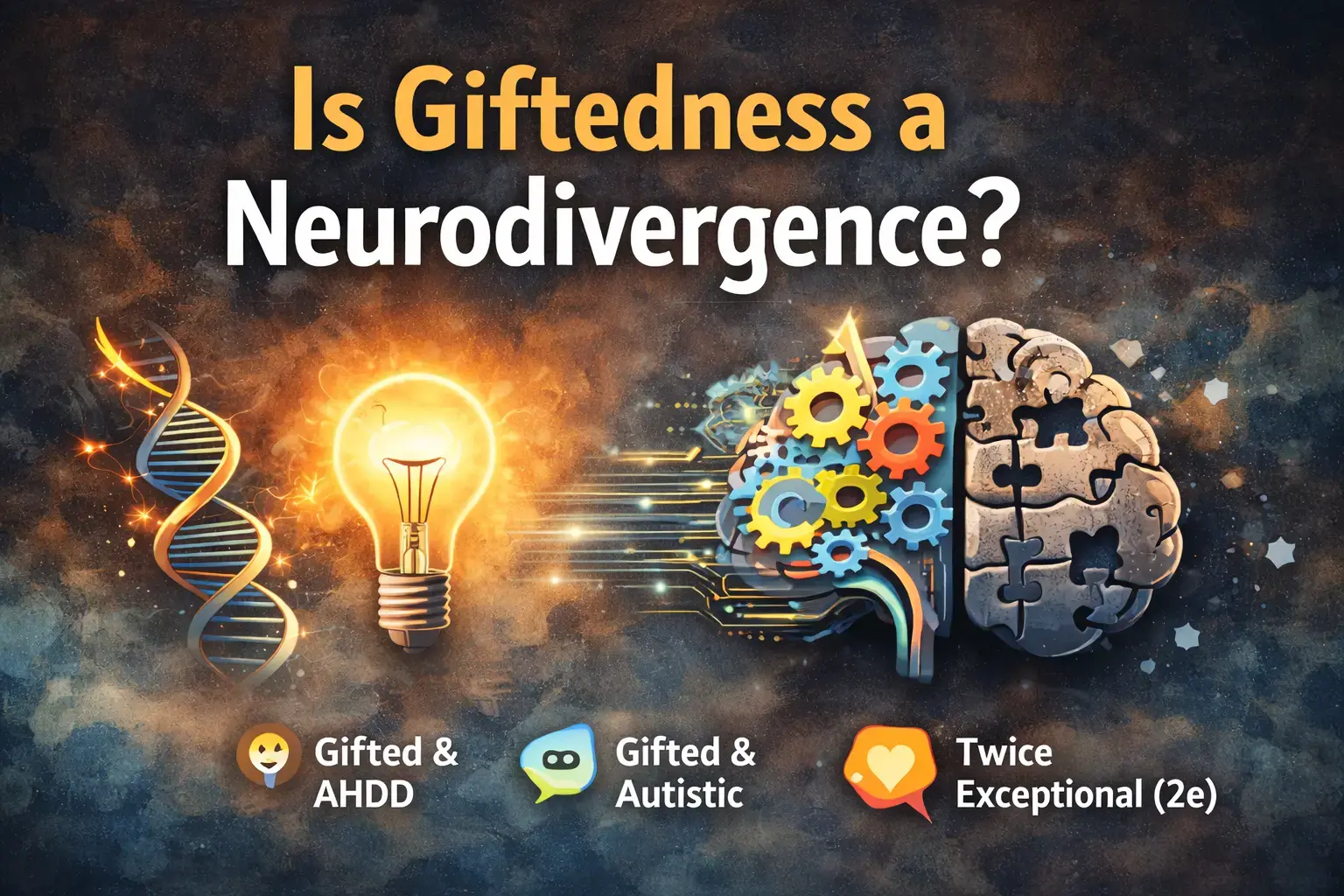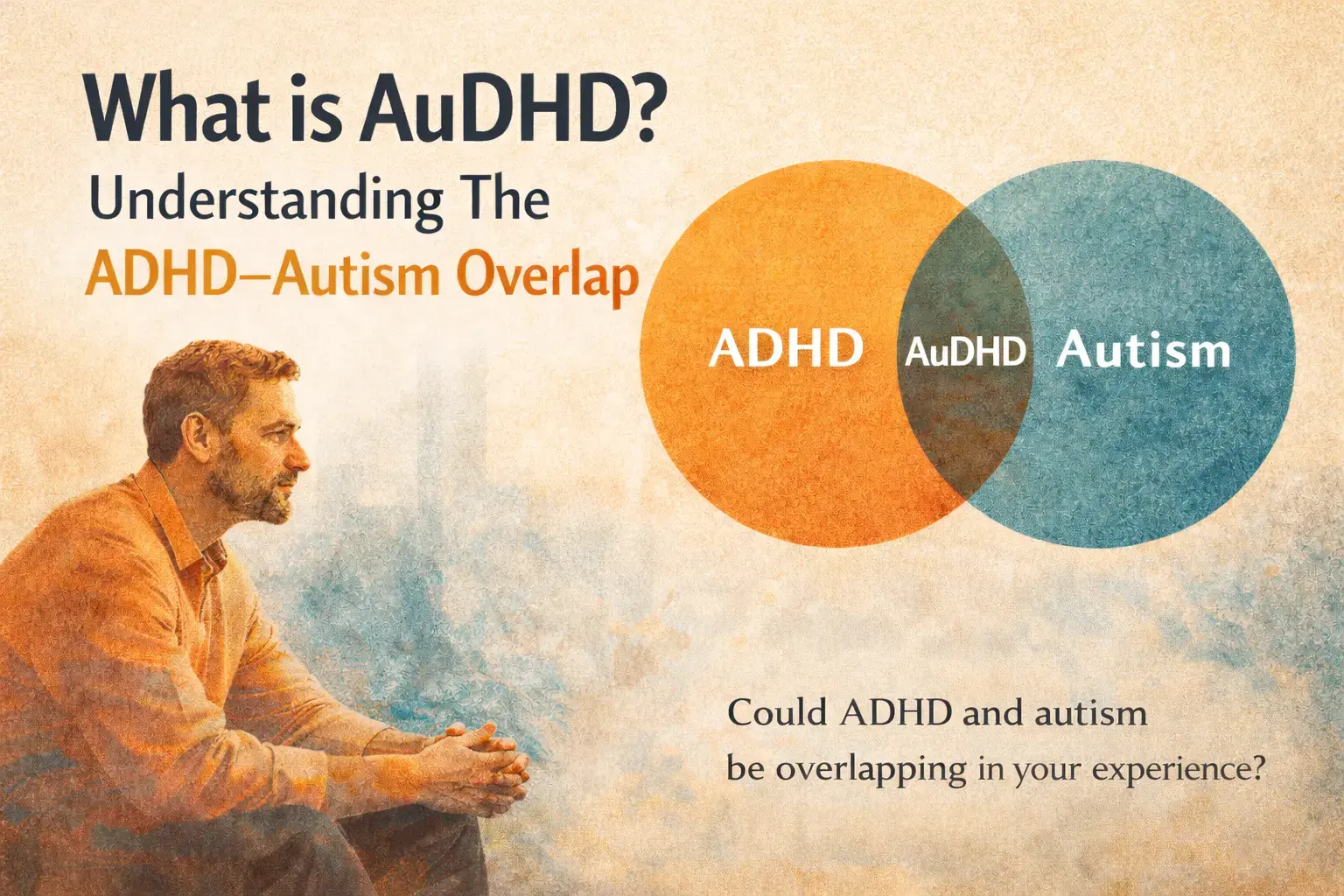Trauma-Informed Care for Neurodivergent Adults

Trauma affects people in unique and profound ways, and for neurodivergent adults—such as those with autism and ADHD—it can present particular challenges that require specialized understanding. The keyword focus here—trauma-informed therapy, ADHD, autism trauma, and neurodivergence and trauma, highlights the need for therapeutic approaches that recognize how trauma impacts neurodivergent clients differently. Using a trauma-informed, affirming approach is crucial for fostering safety, healing, and empowerment.
You can learn more about neuro-affirming support and therapy.
This perspective is central to the practice of Becoming Yourself, with Registered Social Worker and Online Psychotherapist Michael Holker, who integrates trauma-informed care with a deep understanding of neurodivergent experiences.
How Trauma Uniquely Impacts Neurodivergent Adults
Neurodivergent individuals often face heightened vulnerabilities to trauma, stemming from a mix of social misunderstandings, sensory sensitivities, and past negative experiences with healthcare or social systems. For example, people with ADHD may experience trauma linked to chronic invalidation, punitive discipline, or struggles with executive functioning in environments that do not accommodate their needs. Those with autism may be particularly susceptible to trauma due to sensory overload, social exclusion, or misunderstanding by others.
The ways trauma manifests can also differ. Neurodivergent adults may experience overwhelming sensory memories, difficulty with emotional regulation, and intensified anxiety or shutdowns triggered by reminders of traumatic events. Their coping strategies might also look different from those of neurotypical individuals, sometimes including masking or internalizing distress, which can complicate diagnosis and support.
The Importance of Trauma-Informed Therapy for ADHD and Autism
Because of these unique impacts, trauma-informed therapy must be adapted to the needs of neurodivergent clients. Trauma-informed therapy, ADHD, and autism care involve recognizing not just the trauma symptoms but also the neurodivergent context in which those symptoms arise.
You may also connect with the safety themes explored in Unmasking in Everyday Life.
Key features of trauma-informed care for neurodivergent adults include:
- Safety and Predictability: Creating a therapeutic environment that feels physically and emotionally safe, predictable, and respectful of sensory needs.
- Affirmation of Identity: Valuing and affirming the neurodivergent identity rather than pathologizing it, which reduces retraumatization.
- Pacing and Flexibility: Allowing clients to proceed at their own pace, honouring their unique communication styles and processing speeds.
- Collaboration and Empowerment: Involving clients actively in therapy decisions, reinforcing their sense of control and autonomy.
- Understanding Masking and Shutdowns: Recognizing these as trauma responses rather than mere behavioural issues.
Why Affirming Neurodivergence Matters in Trauma Care
Incorporating knowledge about neurodivergence and trauma ensures that therapists do not overlook how the intersection of these factors shapes healing. Affirming neurodivergent identity helps counter internalized stigma, which is often intensified by trauma and can block recovery. When therapy respects neurodivergent ways of being, clients are more likely to feel seen, heard, and understood, paving the way for deeper trust and breakthroughs.
For identity components in trauma recovery, you may appreciate the role of identity in neurodivergent healing.
Conclusion
Trauma-informed care for neurodivergent adults is essential because traditional therapeutic methods may fail to address the nuanced realities of autism trauma and trauma in ADHD. By integrating trauma-sensitive and neurodivergence-affirming approaches, therapists can provide more effective, compassionate support that promotes healing and resilience.
This approach is deeply reflected in the work of Becoming Yourself, Social Worker and Online Psychotherapist Michael Holker, who offers specialized trauma-informed support for neurodivergent adults navigating trauma.
If you or a loved one is seeking a compassionate, trauma-informed therapeutic environment that honours neurodivergent experiences, reach out to Becoming Yourself, Registered Social Worker and Online Psychotherapist Michael Holker. Take the first step toward healing with an affirming and understanding approach tailored to your specific needs.
If you’d like to learn more about my trauma-informed, neuroaffirming approach, you can visit my services page, where I outline how I support neurodivergent adults.
If trauma or misattunement are themes in your own story, you’re invited to connect through my contact page to explore trauma-informed therapy.
Or stay on the blog and learn more about ADHD, Autism, and Giftedness.
Blog Disclaimer
This blog includes occasional personal anecdotes used to illustrate therapeutic ideas and foster connection. All identifying details have been altered or omitted to protect confidentiality. These reflections are intended as examples only; every individual’s experience is unique, and what resonates for one person may not apply to another.
The information provided here is for educational and informational purposes and should not be considered a substitute for professional medical or mental health advice, diagnosis, or treatment. If you have concerns about your health or well-being, please consult a qualified healthcare provider or licensed mental health professional.
Psychotherapy services described on this site are available to residents of Ontario. If you are interested in support or would like to schedule a complimentary 20-minute consultation, you are welcome to contact me through my practice.
These resources are offered to support your learning and self-understanding as you move toward a more grounded, authentic, and meaningful life.

Michael Holker HBA, BSW, MSW
Michael Holker, MSW, RSW, is the compassionate heart behind Becoming Yourself Counselling. Discovering his own neurodivergence later in life shaped his existential, humanistic, and strengths-based approach to therapy. Guided by his lived experience, Michael helps neurodivergent individuals move beyond self-criticism toward self-understanding, self-compassion, and self-acceptance. His work invites clients to honour their journeys, embrace their resilience, and reconnect with their authentic selves, cultivating a life of greater alignment and meaning.


